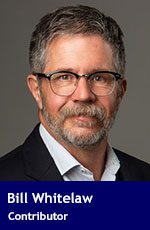Canadians feel disengaged from the current politics behind energy policy. Here is my proposal to help bridge the gap
 When Jane Austen painstakingly penned Sense and Sensibility early in the 19th century, she was driving societal critique as germane today as it was when her quill scratched across the page by candlelight.
When Jane Austen painstakingly penned Sense and Sensibility early in the 19th century, she was driving societal critique as germane today as it was when her quill scratched across the page by candlelight.
Austen lamented what she viewed as a feckless society – specifically the landed gentry – preoccupied with frivolous, mindless, and aimless activities as the 18th century transitioned into the 19th. It was a society, she believed, in which “sensitivities” manifested as overwrought emotion and ungrounded idealism impaired society’s progression forward.
As she developed her characters, shaped their dialogue, and plotted her overall narrative strategy, Austen crafted her argument in favour of a social and civic order in which empiricism, rationality and reason were drivers of peace, stability, and progress.
Fast forward to Canada in 2023.
Austen would have the same literary fodder to consider if contemplating contemporary Canadian social conditions – particularly at the nexus of energy, politics, climate, and civics.
Here’s my premise, a la Austen: almost one-quarter of the way through the 21st century, Canadians are profoundly disengaged – even disinterested – in matters of climate, energy, and the economy. Our society is shifting, both subtly and tectonically, on many levels, and Canadians feel destabilized by these shifting social sands.
They (generally) understand little of the system’s complexities on which their energy and economic lives depend. But it is those very same systems and their equilibrium that impact day-to-day living so profoundly. Paradoxically, perhaps, those same lives are permeated with much white noise and little in the way of clear signals around how to bring reason and logic to the fore – for reason and logic are foundational to equilibrium.
We are living in times of failure when it comes to good politics and good policy. We are living in The Age of Reason Dying.
Thus, Canadians despair of the ideological landed gentry landscape which has devolved to extremes of the left and right. They lament a political system which seems more focused on sophomoric barb-tossing than on the serious statesmanship these difficult times require of society.
Nothing links or unites Canadians across shifting fronts of profound change. There’s nothing like a common language via which Canadians can build a federated consensus on climate and energy policy. And so, Canadian society is caught on the horns of a dilemma as they feel disenfranchised by political elites seemingly preoccupied with their own ideological replication and more focused on luring Canadians to the spectrum’s extremes than they are listening and responding to “matters of the middle.”
So, emotion and madness rule. Reason is rare. Facts don’t (seem to) matter much. Empiricism doesn’t matter to politicians more intent on empire.
There is no sense, especially common sense. And there is nothing that resembles sensibility.
And yet, intuitively, Canadians know that matters of energy, environment and economy are important because they live the costs and benefits of its conflicted realities. If asked, they would have perspectives to proffer and opinions to offer.
But no one in power is listening.
That’s why Canadians need the Climate Sense and Sensibility Listening Panel.
Note the emphasis on listening. All parts of Canada’s energy ecosystem are very, very good at “telling”. They are just not very good at listening.
But the men and women on this proposed 20-person panel are good listeners. And they are very good – no, excellent, as Canadians – beyond their obviously rich and textured CVs.
They live, work, and play in Pracademia – that no-so-imaginary land where academics and practitioners can put their heads, skills, and passions together to achieve something politicians seem incapable of nailing.
This panel’s purpose is manifold.
The panel would listen to Canadians via a national engagement and listening tour measured over months.
Panelists would engage with Canadians with an attentiveness that would at first seem alien to them. Someone actually interested in what they have to say? Incroyable!
Note the order. Listen. Then talk. And listen and talk again in an iterative shaping of new energy-and-the-economy frontiers in which sustainability is a driving motivation.
And then the panel would take our political gentry and policymakers to school. And the rank-and-file can only hope the gentry is collectively a better student because the middle now matters at the voting station.
Here, in no particular order, are my proposed panellists. I know them all. They’re women and men of integrity, intellect, and innovation.
Dr. Vaclav Smil
University of Manitoba scholar, scientist, and author extraordinaire and one of the world’s leading energy and economic thinkers.
Dr. David Detomasi
Queen’s University business scholar, with a deep and nuanced understanding of Canada’s “energyscape”. Well-respected within the oil and gas sector.
Dr. Monica Gattinger
A top political scientist and commentator. Oversees the Positive Energy program at the University of Ottawa. Makes things happen.
Dr. Roger Pielke Jr.
Known as “The Honest Broker” – based on his work for science at the intersection of politics and policy. Out of the University of Colorado at Boulder. Knows Canada well and is a necessary external voice.
Dr. Niall Mac Dowell
Professor of Future Energy Systems at Imperial College in London. Leading world thinker on systems change. Knows Canada well and can tie us to the rest of the world.
Dr. Heather Exner Poirot
Political scientist and big brain at the Macdonald-Laurier Institute. Too many achievements to list, but a leading expert on indigenous energy dynamics. A wonderful writer and nuanced pundit.
Dr. Andrew Leach
Top economist at the University of Alberta. Understands the nuances of the climate-economy nexus like no other. Loves data almost as much as he loves his students.
Dr. David Layzell
Runs the University of Calgary’s Canadian Energy System Research and Analysis Institute. Co-founder of The Transition Accelerator. Gets stuff done.
Stewart Muir
Visionary founder of Resource Works in British Columbia and a long-time advocate of commonsense. Sharp and incisive commentator with a clear penchant for the bottom line of facts.
Marla Orenstein
One of Canada’s sharpest public policy minds. Runs the Natural Resources practice at the Canada West Foundation. Knows the dynamics of impact assessment like the back of her hand.
Markham Hislop
Top journalistic mind. Understands energy systems like no other. Cuts through the crap.
Peter Tertzakian
Enough said. Energy’s Renaissance Man. Laments system hubris. Check out www.energyphile.org
James Millar
Seasoned business executive and communicator extraordinaire. As CEO, oversees the International CCS Knowledge Centre in western Canada, doing foundational work in the energy transition space.
Steve Saddleback
One of Canada’s leading indigenous energy voices. Advisor to the First Nations Major Projects Coalition and runs his own consulting firm, Opimoyaso Group. Everyone knows Saddleback.
Chief Judy Desjarlais
Chief of the Blueberry River First Nation. Stared down the BC government at the Supreme Court. And won. Set a new tone for the role of indigenous communities in energy. And she runs an oilfield service company.
Allan Fogwill
Chief Operating Officer of Petroleum Technology Alliance of Canada and former leader of the Canadian Energy Research Institutes. Understands pretty much all of it.
Sandra Odendahl
An engineer with a big financial brain and a love for sustainability and innovation. Ran Carbon Management Canada and now drives BDC’s ESG efforts. Talk about integrity.
Alison Cretney
Managing Director of The Energy Future’s Lab, an organization dedicated to “radicalizing” the middle. Focuses on the dynamics of “future-fit hydrocarbons. A true leader, with integrity to spare.
Lisa Mueller
President and CEO of FutEra Energy – a company whose business model will define next-generation thinking and responsible resource development. Very, very smart. And a super person to boot.
Peter LaFontaine
Entrepreneur. Innovator. Philanthropist who understands social profit and corporate profit are often the same thing. Watch his Rainforest Energy redefine how energy gets done in Canada. (Hint: think circular economy.)
To the premiers and their cabinets – and the prime minister and his cabinet – you can have this idea for free. Act on it now because time is a-wasting.
Bill Whitelaw is the Managing Director of Strategy & Sustainability with Geologic Systems.
For interview requests, click here.
The opinions expressed by our columnists and contributors are theirs alone and do not inherently or expressly reflect the views of our publication.
© Troy Media
Troy Media is an editorial content provider to media outlets and its own hosted community news outlets across Canada.


